What is ASUS CSM?
The CSM stands for the ASUS Corporate Stable Model. One of the biggest features, and one that hit STH recently on another platform, is that this has a 36 month supply and also a 6-month end-of-life notice. One can actually do lifecycle planning using these boards where that is not common on consumer platforms.
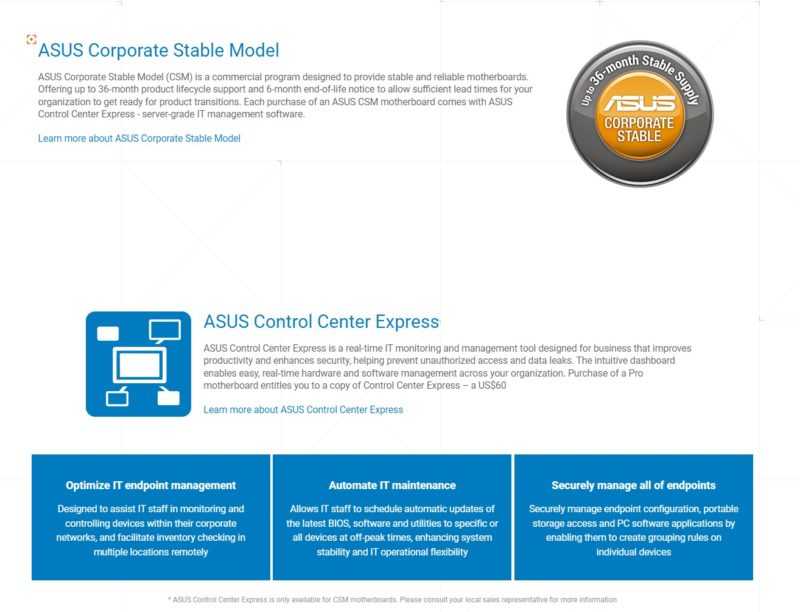
That ASUS Control Center Express (ACCE) is a management solution from ASUS.
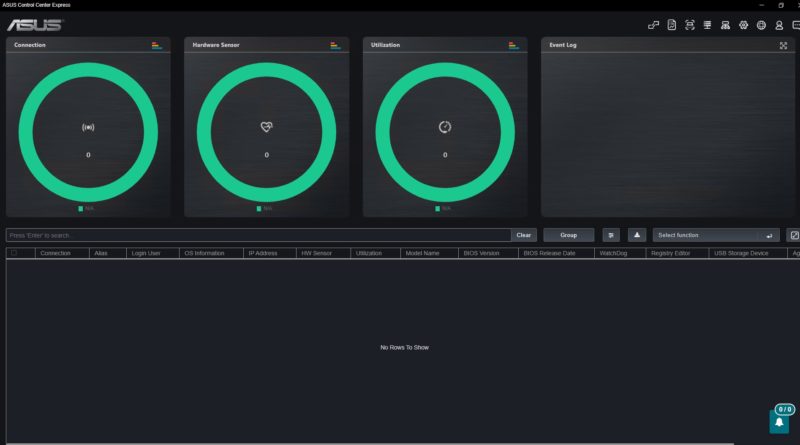
The ACCE requires agent configuration in the monitored systems, but once installed you get fleet management capabilities for seeing configurations and changes, overheating machines, chassis intrusion, and more.
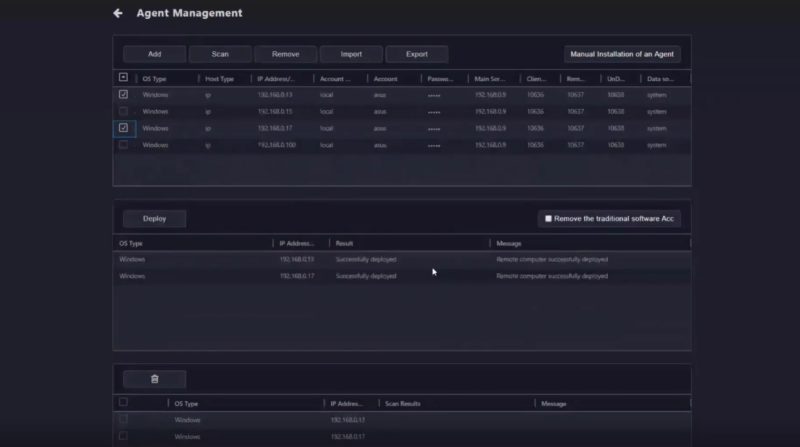
The ACCE license comes with each CSM motherboard so you are getting not just the base motherboard hardware, but also a bundled management solution with the CSM models.
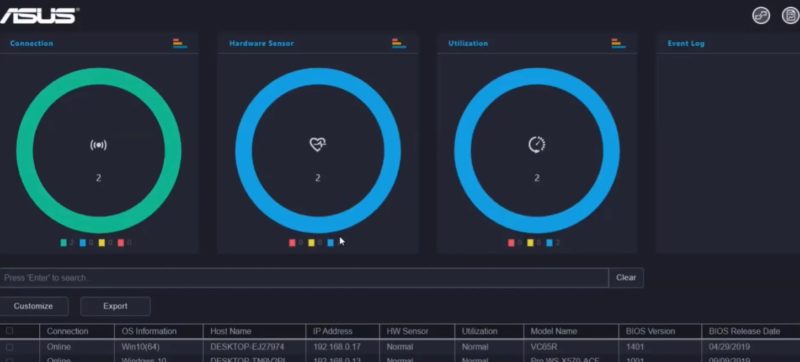
There are a few CSM features we did not get to test. ASUS says that it uses an anti-moisture coating, but we did not spray this motherboard down with water because we did not want to break it before doing the review. ASUS stresses component reliability in its CSM marketing. We will quickly note it also stresses reliability with its TUF series and those boards look very different.

Another feature that we did not have is the Commercial BIOS Kit. That allows for BIOS tweaking like being able to customize the boot logo, edit available BIOS options, and even do OEM license activation.
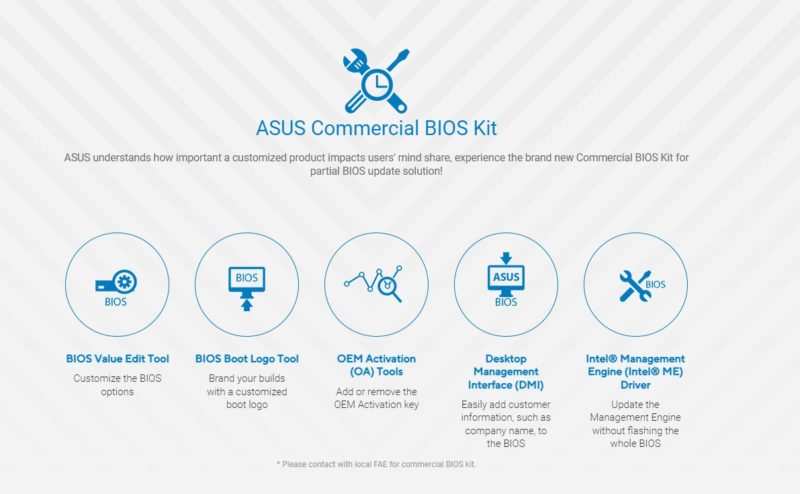
Another feature that we want to try one day is the ASUS DASH LAN card. The motherboard itself has a SMBUS header and this allows for out-of-band management.
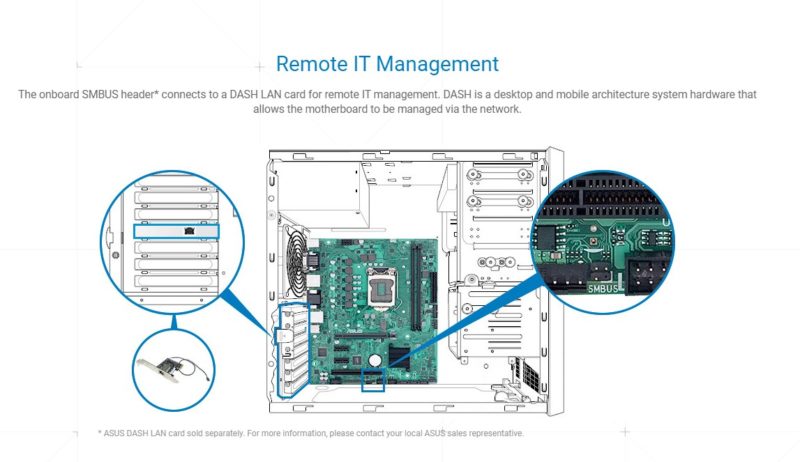
The BIOS is also different from the last time we reviewed an ASUS CSM motherboard many years ago. It looks more like a server BIOS than a consumer platform.
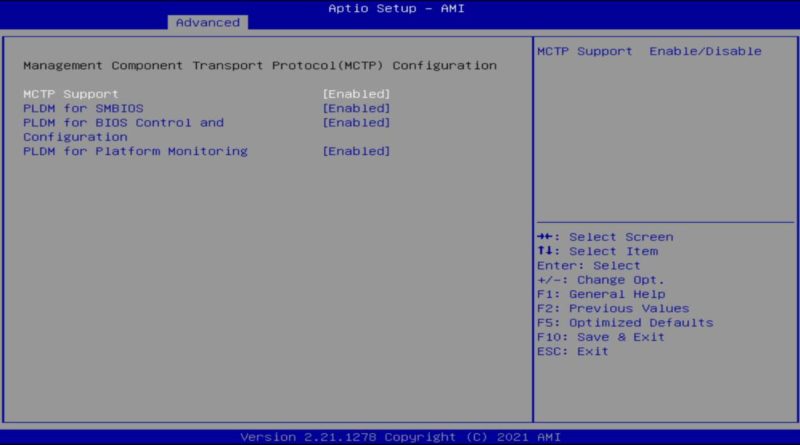
We tested the system with Windows 10 Pro and Windows 11 Pro to ensure that the TPM is supported. On Windows 10 Pro, we had to install the Intel LAN drivers via USB, but it is also crazy that in 2022 this is still something one has to do with a completely fresh installation. Most corporate images will already have this built-in, but this is just something you may have to do.
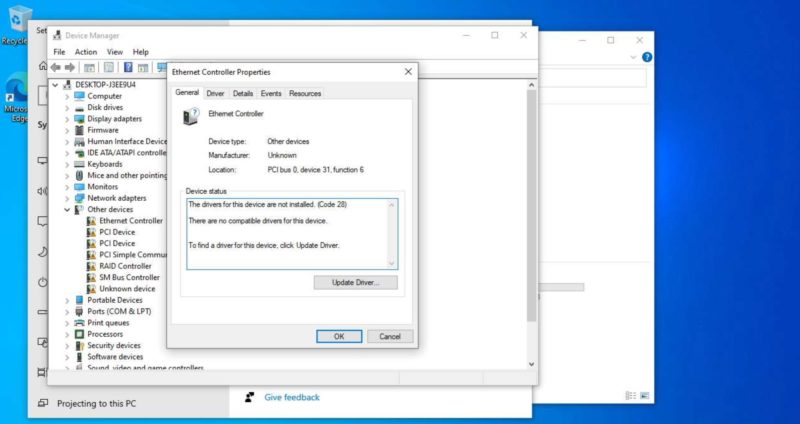
For Windows 11 Pro we did bot ha fresh installation as well as the Windows 10 Pro to 11 Pro upgrade, and this worked.
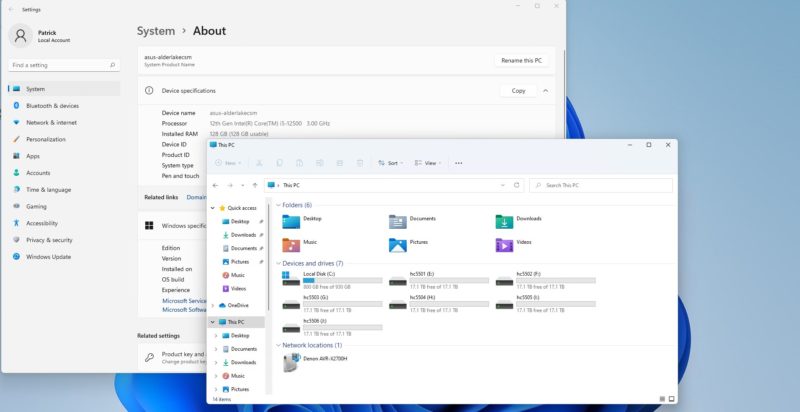
There is a lot to the ASUS CSM package, but hopefully our readers now have some idea of why CSM is different than consumer lines. Even without the fancy heatsinks of the consumer boards, the CSM models are not necessarily less expensive than their consumer counterparts, but that is because there are other features being bundled, like a remote management solution and a more stable supply chain.
Next, let us build a system with this motherboard.

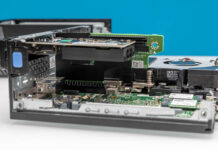
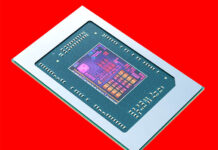
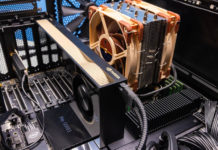
Any ideas about powerusage vs more “gaming/consumer” orientated mainboards?
re: sata card
Recommend additional fan for cooling sata card chip.
(Mine could work for 5 day of constant formatting or random access of multiple hdds, but fail (disk not attached) after 6 hours of realtime use of moderate sequential file writes with one hdd)
Hdds, and not consumer fans, are loud, imo.
Already with super wepyc you were warned of low air flow for io cards, also nonrack built.
Would be interesting report: the stability of setup, and if used for 24/7 or not.
It also seems that here 4 fans for hdds could be installed (no top cover anymore though, 2 if top cover remains) in a ghetto version with hdd temp concerns.
Do business build their own PC’s? Asus board looks so ugly. Can’t remember the last time they made ugly board. Lol
Imo it’s waiting for the W680 motherboards, such as by Asrock in various formats and also SUperMicro announced some.
Due to competition by AMD, Intel has finallly moved to unlock full ECC on their 12th gen core series chips when used in combination with a W680 motherboard (so still some segmentation). But it means we finally get ECC on this cheaps. The only other workstation chip by intel right now is the W3300 series, which is at a far different pricepoint and offers way lower IPC. (obviously it has some very high end workstation features). Other than that the W1300 series is a bit of a joke, with most manufacturers seemed to have skipped W580 motherboards entirely.
So bottomline, W680 with Alder-Lake S CPUs are going to offer full ECC support with core chips like the I7 12700K etc. Those cheaps offer very good performance and have quite a few PCIE 4.0 lanes when considering the CPU and chipset lanes combined. Very good entry to mid-level workstations. I am really looking forward to that.
Hurray for comptetition!
Why don’t You test vPro capability? I wonder how it is working in this motherboard and what I can require for this